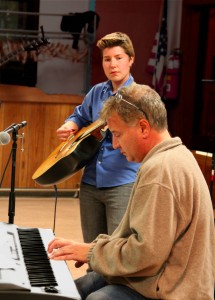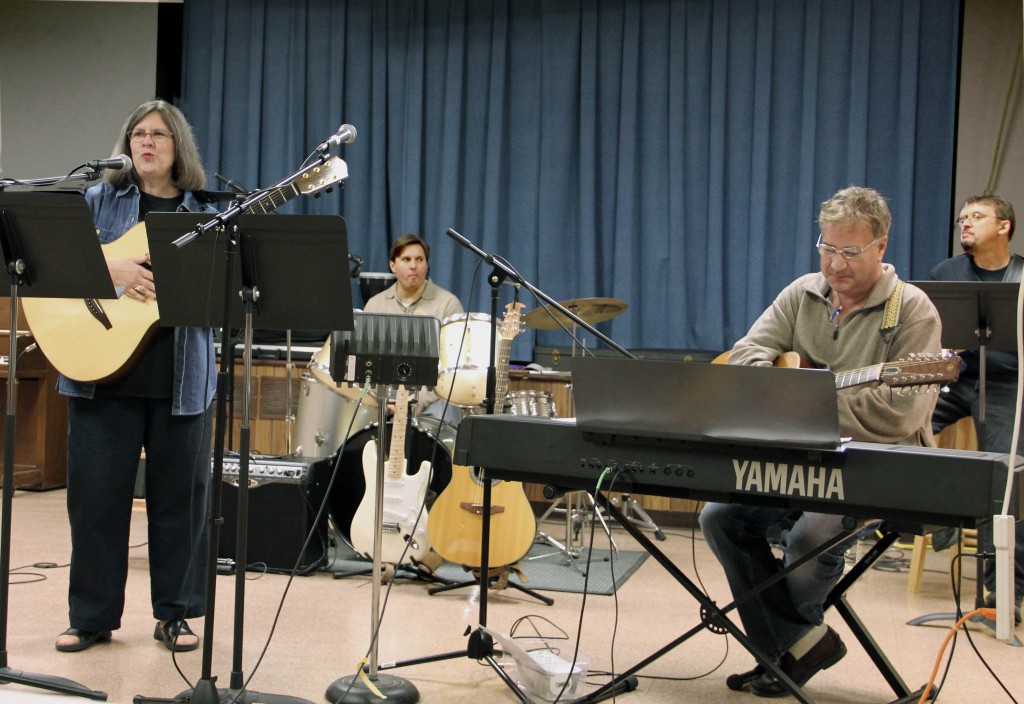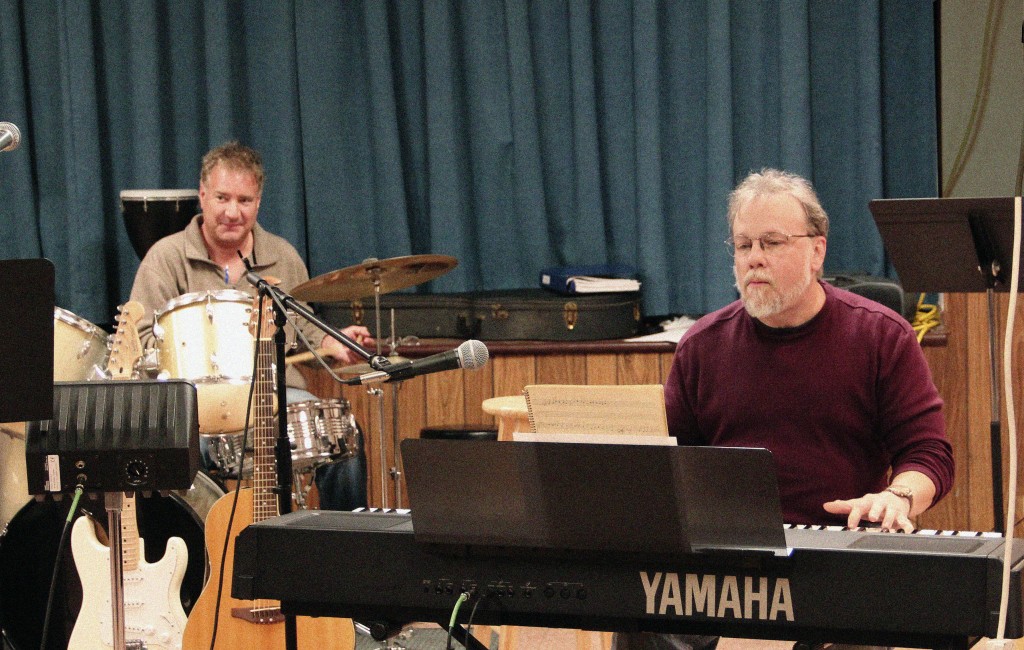Let’s imagine the conflict known as the Civil War. It had been brewing since before the Constitution was ratified. The issues were marrow deep in American society, so much so that any attempt to address the issue of slavery was, in effect, a deal breaker for the new nation. The South made it abundantly clear that any action on the part of the North to write into the new guiding document the idea that black slaves were somehow deserving of the liberty being claimed for their white owners—and thereby signaling the end of slavery among the Thirteen Colonies—would be met with absolute refusal to play. Had the reformers, exemplified by the likes of Benjamin Franklin, tried to assert any kind of racial equality at the time, the United States would have been stillborn.
Instead, they put a time limit into the document—20 years—which forbade the topic from even being discussed in Congress until that later year, at which time, presumably, the issue would come to the floor for some kind of resolution. History shows that every such attempt was met with denunciations by southern members of Congress and often with threats of secession—which by then were illegal.
Make no mistake, as some revisionists might have you believe, secession was not an option and everyone who voted to ratify the Constitution knew it. Contrary to popular mythology, the original 13 states locked themselves together permanently. A couple of later territories parlayed an “escape clause”—Texas was a big one, but the Texas “right to secede” had a limiting condition: Texas could only leave as long as it never took up arms against the Union, which, much to Sam Houston’s consternation, it did during the Civil War and forever lost that right, despite what Governor Perry might wish people to believe—but by and large, joining the Union was a binding act that could not be reversed other than by armed rebellion. The South was in the wrong, legally speaking.
Another bit of modern revisionism that has become popular is that the South did not secede over slavery but over “states rights.” This is patent nonsense and any cursory perusal of the declarations of secession shows that issue number one for all of them was slavery. They were not going to let Abraham Lincoln and his Republicans take away their property.
It’s difficult to imagine how it must have felt to be caught between the two sides. Philosophically, I mean. And where you lived didn’t make much difference. There were riots in New York and other places in the wake of the Emancipation Proclamation. Many Northerners who had supported Lincoln in the war effort turned on him when the issue changed from preserving the Union to freeing the slaves. Poor whites were no more enamored of the idea of free blacks than were Southern plantation owners. As far as they were concerned, it was more competition for already depressed wages.
And the fact is many on both sides of the Mason-Dixon line, even among those who didn’t support slavery as such, did not regard Africans as fully human—at least not the equal of white people.
Try as we might to spin it otherwise, the many-faceted nature of the War Between The States turned on questions of what it meant to be human.
We still have not settled that question. It may be that for many people it is simply not settleable.
I want to be very careful here. My purpose in laying out the nature of the conflict during the Civil War is to establish a base for what may end up being another civil war if we’re not very careful. The conduct—philosophically, politically, legally, morally—on both sides of the slave/emancipation divide illuminates aspects of our culture and our nature that are difficult.
There may have been many white people at the time who truly believe blacks were fully human and fully equal by nature to whites. Most of them did not hold much authority and given subsequent history they did not win the public debate. African Americans remained second or third class citizens for well over a century after the end of the war and in some ways today still face an uphill struggle for equity. The bases of the discrimination mutated over time and it might be fair to say problems shifted from nature to nurture and took on sociological contours rather than biological, but the fact remains people do not treat each other as fully human in all circumstances.
It is a salient fact of our history that during the heated debates of the Emancipation and Reconstruction Eras over equal rights, equal status, and equal abilities, one group was not even considered as relevant. Women.
Certainly the Women’s Suffrage Movement put forth arguments for equality, but the country was not likely to go to war over what people like Elizabeth Cady Stanton and Susan B. Anthony asserted—that one half the population lived in conditions of chattel bondage and servitude based on gender.
The list of inarguable facts speaks for itself. Women did not have the right to vote (federally, that is—some states granted it, here and there, from time to time, in limited fashion) until 1920.
Throughout the 19th Century, a divorced woman lost everything. As a married woman, all her property belonged to her husband, including the children, and in the instance of a divorce the law said her ex-husband owed her nothing. She left with the clothes on her back, which was all she was legally entitled to. Variations existed here and there, but generally this was the case.
A woman was denied entree into the professions whenever possible. The first woman to graduate with a medical degree in the United States was Elizabeth Blackwell in 1849. She was barred residency in a hospital due to her sex. The struggle continued, but by 1920 women represented only 5% of the entire medical profession as doctors. Elizabeth Bragg graduated from Berkely in 1876 as a civil engineer, but it was not until 1965 that a woman was elected to the National Academy of Engineering. In 1869, Arabella Mansfield graduated law school and applied to the bar in Iowa. Iowa law forbade any but white males from taking the bar, but an exception was made. She passed. (A year later the law was repealed, suggesting that she was allowed to take the bar examination with an expectation that she would fail.)
You get my meaning. The numbers were low, the exceptions more or less famous. Most women in the professions generally had to give them up when they married and there was no social space for a career woman to live her life with the same expectations of free conduct as her male counterparts. The professions for women were very much like taking vows.
The Civil War seemed to settle the question as to the humanity of slaves, but did nothing for women.
Of course, had you phrased it that way at the time, many people, including many women, would have looked at you like you had just stepped off a spaceship speaking High Arcturan. Of course women are human, they might answer. But, good heavens, they’re women.
As if that explained anything.
At the time, it sort of did, though. Women had a clearly-defined function as far as society—and most people—were concerned. They were to be wives and mothers. Anything else was vanity at best, offensive at worst. Women should be what they were “made to be” and aspire to nothing more.
It didn’t seem to occur to most people that the prohibition on aspiring to be more implied that women did aspire and aspiration was a wholly human trait.
But I digress. The fact is, any attempt to question this basic assumption was met with disdain and often the full force of the law. The Suffrage Movement itself split over the nature of female aspiration—most thought it enough to simply get the vote, while others intended that women be granted the full rank and privilege of being human as expressed by the lives of their male counterparts, with all that entailed. It might be that this was more a tactical issue, but I don’t doubt that for many it was philosophical as well. In an instance of political expedience, the Suffrage Movement repudiated the ambition to make women wholly their own agents and decided to stick to the more “sanitary” program of achieving the vote. They didn’t want to frighten potential male supporters by arguing for their right to be anything other than what they had always been—wives and mothers—only with the right to vote.
Of course, even after gaining suffrage in 1920, women remained second-class citizens because society treated them that way. Educational opportunities were harder to gain, access to jobs and careers more difficult (and when gained, advancement and recognition delayed or denied), and economic shackles remained. Up till the 1990s, a woman’s credit history belonged to her husband, and often, even after a divorce, she would find it very difficult to establish any credit on her own without her (former) husband’s history making it awkward. As the 20th Century progressed, it became clear that the vote simply wasn’t enough, that equality was made up of much more than the franchise—it entails respect, agency, and an assumption of individual worth and merit, none of which can be gained by casting a ballot but only by being allowed to live as one chooses.
I think it came to a real head after the Second World War, when all those women, who had been working in industry, building the machinery with which we waged that war, were told to go home and forget all about self-sufficiency, because the men were coming home and they needed not only jobs but pliant females who wouldn’t compete with them. It wasn’t just the jobs, but a massive change in the educational system—classes that had opened up to women in the 20s and 30s were suddenly closing down again, women who wanted to pursue careers were castigated as unnatural, the whole weight of cultural expectation that characterized women as essential sex toys and brood mares fell on them in the 1950s and turned that decade into one of the strangest periods of American history and set the stage for all the emancipatory movements of the Sixties and Seventies. June Cleaver was the cultural icon women were supposed to aspire to. This to women who had been and whose mothers had been building tanks, airplanes, and ships in the 1940s, running assembly lines, driving trucks, farming, and so much more. They were expected to just forget all that and return to a condition of simple-minded obeisance all for the boys coming home.
As patriotic as this sounded, this was an instance where sacrifice becomes a form of slavery.
Yes, there were many women who were probably perfectly happy with this state of affairs. But their happiness was built on the shattered dreams of women for whom this was simply unacceptable. The one cannot be justified by the desire for the other.
By now, it may be obvious where I’m going with this. We are facing the possibility of another civil war, one I’m not sure where the lines will be drawn, but one that could be brutally destructive. We joked about the War Between the Sexes back in the day, but that’s not what this is. This is going to be a war over the exact nature of agency. The flags have now gone up the poles on the one side and I think it has taken a lot of people by surprise. The blowback is coming.
Here is how I feel about this. One side in this conflict wishes to privilege potential life in such a way as to deny self-determination and agency to half the population, the half that still has a solid argument that it has not yet been granted full equality with the other half. That for the sake of what may be they will have to surrender themselves to conditions of servitude that the other side simply does not have to suffer, purely by dint of biology.
It is not sufficient to argue that all the one side wants is for things to go back to the way they used to be. The way things used to be was not acceptable—that’s why we changed it. The way things used to be was built on hypocrisies and legal fictions that privileged a status quo which, as long as certain people exhibited no aspirations at odds with the publicly accepted norms, everyone pretended was equal and fair and just.
Well, we all know how often that is actually the case.
What disturbs me—appalls me, really—is how little the Other Side really knows, not only about our history, but about any history, and how they are so easily manipulated by the agents of regress. There are certain arguments we should have been done with that we’re having to have all over again because people—many people—don’t have a clue what has gone before.
They’re the sorts who believe the revisionists who tell us that the Civil War wasn’t really about slavery but states rights or that the South really did have the right to secede.
They’re the sort that believes that any woman who has the temerity to talk publicly about her right to have sex is a slut.
A word to the wise—it’s not temerity; it’s self confidence.
See you on the barricades.














